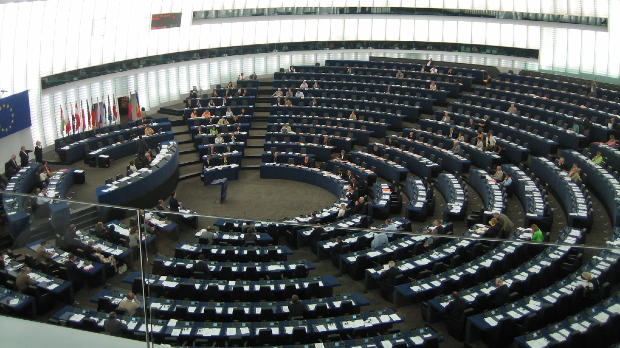 European Parliament gets scientist friendly with changes to a sweeping data sharing lawWIKIMEDIA, JLOGANEuropean officials last week (December 15) announced that they had rewritten draft legislation, changing a provision limiting researchers’ access to personal health data. The provision, added by the European Parliament last March, would have made it difficult for researchers to use personal health data, forcing them to obtain new permissions from study subjects if and when the focus of research changed, and prohibiting study subjects from granting broad consent even if they wanted to. “We are delighted with the outcome,” Beth Thompson, a policy adviser at the Wellcome Trust in London who helped organize a campaign to persuade officials to revise the draft legislation, told ScienceInsider. The “compromise solution works for both the research community and the people.”
European Parliament gets scientist friendly with changes to a sweeping data sharing lawWIKIMEDIA, JLOGANEuropean officials last week (December 15) announced that they had rewritten draft legislation, changing a provision limiting researchers’ access to personal health data. The provision, added by the European Parliament last March, would have made it difficult for researchers to use personal health data, forcing them to obtain new permissions from study subjects if and when the focus of research changed, and prohibiting study subjects from granting broad consent even if they wanted to. “We are delighted with the outcome,” Beth Thompson, a policy adviser at the Wellcome Trust in London who helped organize a campaign to persuade officials to revise the draft legislation, told ScienceInsider. The “compromise solution works for both the research community and the people.”
The newest incarnation of the three-year-old legislation grants researchers access to data for which patients have given broad consent—with assurances regarding privacy protection and strict ethical approval—and allows scientists to use such data in perpetuity as long as consent is not withdrawn. The change came after a coalition of European research organizations banded together to influence the European Commission, the European Parliament, and the European Council, which negotiated to reach the legislation’s current form. “Researchers will now be able to continue exploring new research opportunities with data under laws that are fit for purpose,” Thompson said in a statement. According to ScienceInsider, the law is expected to be approved early next year.





















